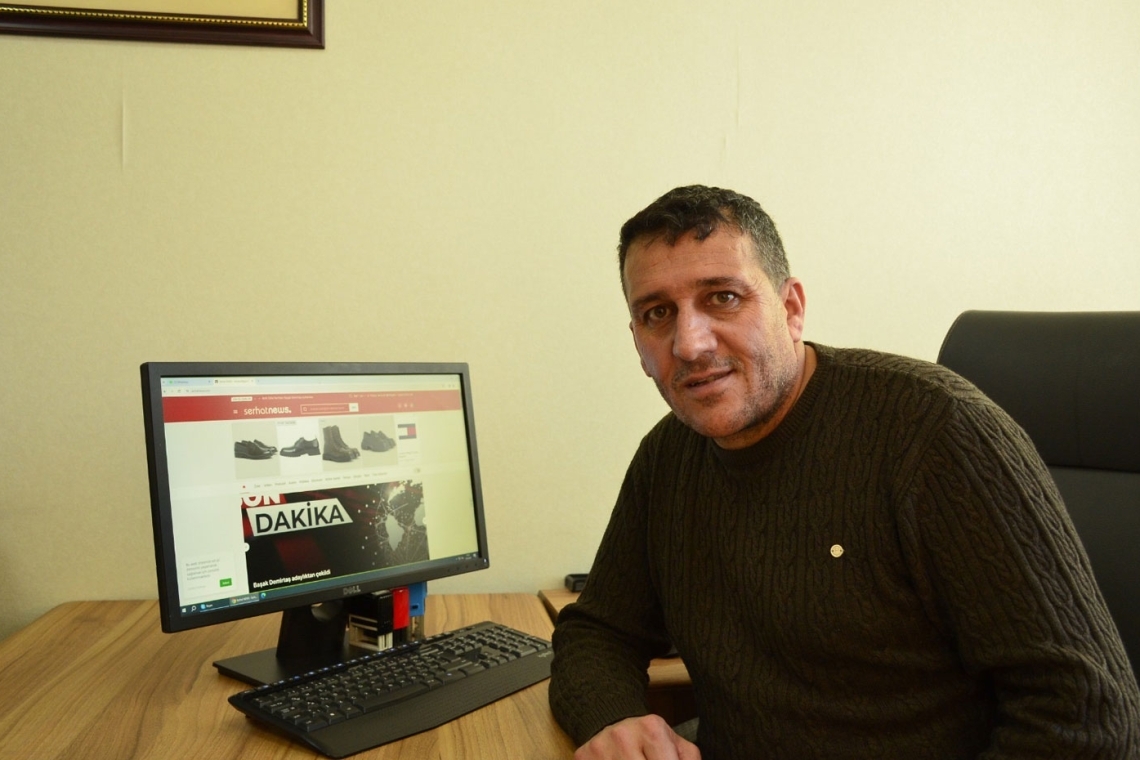NİMET ÖLMEZ, VAN
Mehmet Sıddık Güler, the editor-in-chief of Serhat News News Site, who was sentenced to approximately 2.5 years in prison for his social media posts, stated that it is impossible to follow the news agenda in prisons where even basic human rights are suspended.
Güler's sentence of 2 years, 4 months, and 3 days was upheld by the Supreme Court of Appeals, and he entered prison on December 22, 2023. Initially placed in Van T-Type Prison, he was later transferred to Van Open Prison. Ahead of his scheduled release on February 19, Güler took a one-week leave from prison.
Güler pointed out that many of the social media posts cited in his sentencing were subjects he had previously been tried and acquitted for, explaining that all his posts were related to news made during the peace process. He mentioned that the process began with a complaint by a journalist in Van about him. "However, posts that resurfaced during the investigation launched after the end of the peace process became the subject of accusation. In fact, some of the posts were from tags by other journalists or organizations. In essence, I faced a sentence imposed by force," said Güler.
Following the news cycle in prison is impossible
Expressing his desire to follow the news cycle in prison, Güler stated it was nearly impossible: "In prison, we are limited to certain news channels. We are forced to rely on information provided by TV channels with similar broadcasting policies. Besides, days in prison pass in complete chaos. You witness the suspension of human values. It's like being completely cut off from the outside world. Even when I was outside, I managed Serhat News with a team. After my arrest, especially with the immense contributions of Yeşim Karaağar, Beritan Elyakut, Zelal Sahidenur Sari, Dıldar Güler, and Zafer Avnaş, Serhat News continued even more resolutely than before. The efforts of these friends during this period cannot be denied. Their great efforts have intensified our work after my arrest."
Güler, who has been practicing journalism in Van and surrounding provinces since 1999, mentioned that even during the State of Emergency periods, journalism was conducted under better conditions: "Nowadays, even reporting a normal press release is considered a criminal element. Normal criticism is also regarded as a crime. However, journalism is the mirror of society. Not every journalist is obliged to think like the government. It's unacceptable that journalists are arrested for criticizing government policies. This equates to creating a monolithic media establishment. Reporting outside is like wearing a shirt of fire. I can say it's the toughest period for journalism in the country. It's a difficult and painful period, also demanding labor and sacrifice. Someone must be the voice of the oppressed during this time. Despite all the negatives, there are many valuable journalists who put in great effort. This struggle must be collectively elevated. I expect everyone who carries the identity of journalism to honor this profession."



